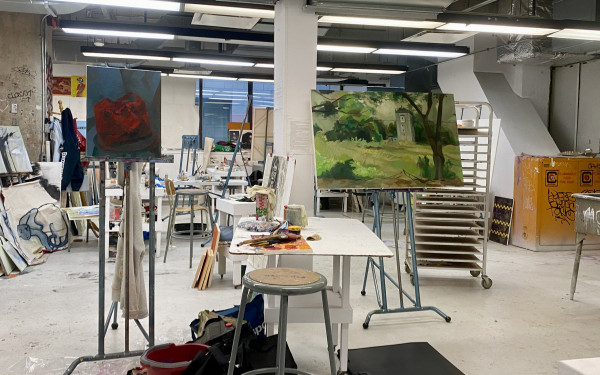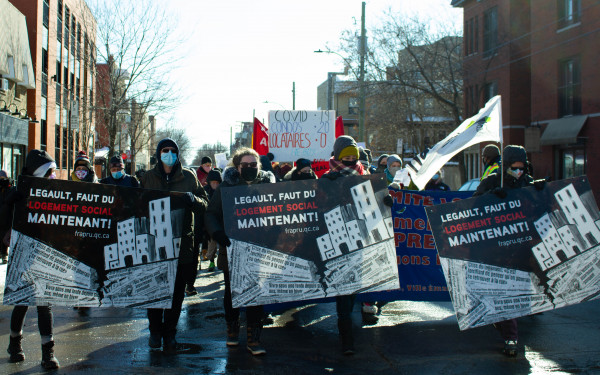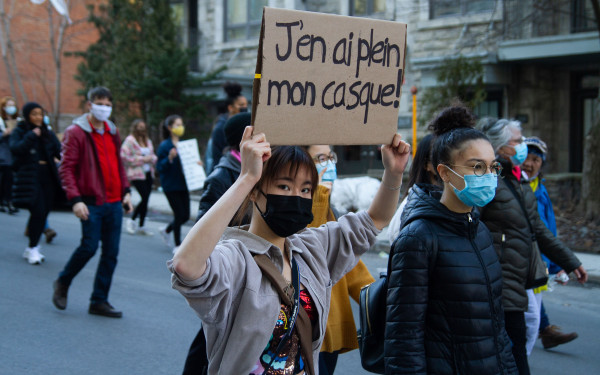CAQ Announces Withdrawal of Controversial Immigration Reform
Fast-Paced Changes and Confusion Impact International Students’ Mental Health
Barely a week after the introduction of a controversial immigration reform, Premier François Legault is backtracking on the entirety of his party’s changes to the Quebec Experience Program.
On Oct. 30, without prior warning, the Coalition Avenir Quebec government released a revised list of school programs and jobs that would qualify for the Quebec Experience Program—known as the PEQ—where 300 fields of studies were cut from eligibility.
The PEQ was created in 2010 under Jean Charest’s Liberal government. Up until Nov. 1, it allowed most international students and people with over a year of work experience in Quebec to apply for fast-tracked permanent residence.
The National Assembly heard testimony from students who were devastated by the changes, as well as voices in artificial intelligence fearing the loss of prospective employees, but Immigration Minister Simon Jolin-Barrette said he would not change his mind.
But, on Wednesday, Jolin-Barrette partially backtracked, announcing the CAQ’s intention to introduce a grandfather clause for students and workers already in Quebec.
On Friday, Legault suspended the changes entirely, saying his party is going back to the drawing board.
But Masuda Akter Tonima, a 28-year-old PhD student in mechanical engineering at Concordia, won’t believe it until it’s official. “I want to see it written first,” she said.
Tonima said these changes have been affecting her mental health.
“I’m not five years old anymore where you can uproot me and put me somewhere else and I’ll be fine,” she said. “It imbalances you, it takes away the steadiness that you’re finally gaining in your life.”
Tonima isn’t the only one who is wary of believing the provincial government. All these changes have left many international students confused.
On the Facebook group created by and for international students affected by the changes to the PEQ, Non aux changements des règles pour le PEQ travailleur et le PEQ diplômé, the provincial government’s latest announcement was welcomed with excitement, and a degree of skepticism.
“There is no point in claiming victory. There is no need to attract a surplus of hatred from those who were already spiteful [of immigrants]. They’re taking a step back so as to better attack later on. Let’s keep acting collectively, let’s stay humble and keep an eye on what’s going on,” wrote one group member, Célestin Wokgoué.
The group’s administrator, Yedil Zerhboub, was more hopeful. “Our organising and our resistance won us this victory,” he wrote.
Camille Bergon, a Concordia alumnus, said the government doesn’t seem to know what they are doing.
“It’s kind of shocking to consider that they make laws that impact our lives, but they don’t even know what they are talking about,” she said, referring to their fast-paced changes.
Bergon is, however, relieved the government is pulling the reform. “I hope they will work closely with universities, employers, other [government representatives], and hopefully us [international students and workers] to have a proper reform in the future.”
Bergon completed a graduate diploma in communications at Concordia in 2017. She then obtained a work permit, eventually applying for the PEQ as a worker a mere two days before the CAQ introduced the changes.
“It went from being everyone’s favourite program to being a catastrophe.” —David Chalk
Students initially upset over surprise changes to PEQ
Fatima Zahra Amane is working on a master of engineering degree in information systems security at Concordia. Originally from Casablanca, Morocco, she’s been in Montreal for one year and will finish her degree in June.
Upon first hearing the news that she would no longer qualify for the PEQ, Amane and her cousins—who are also students in Montreal—were devastated.
“We started calling the immigration office and asking them questions, and they were so brief in their answers. They were like, ‘Okay, have you seen the list? If you’re not on the list, you aren’t accepted,’” Amane said.
Although a bachelor of computer science was there, Amane’s master of computer science was not listed.
“We felt like they didn’t even know what they were talking about. It felt like they had some rules: try to say the bare minimum, try to not give information that could be used against [them] after,” she said. “Everyone was very scared.”
Tonima is in a similar position. She came to Montreal from Bangladesh over two years ago with her husband. They are both working on PhDs in mechanical engineering.
The Canadian government had offered them both express entry to Canada. In order to accept this invitation, they would have had to move to another province after their studies.
Upon arriving, Tonima and her husband fell in love with Montreal and wanted to build their lives here, so they rejected the invitation—thinking they would apply for permanent residence in Quebec through the PEQ.
Immigration lawyers, universities not consulted
David Chalk, immigration lawyer and executive member of the Quebec Immigration Lawyers Association said these new regulations came as a surprise.
“It was really a shock when the immigration minister [Simon Jolin-Barrette] described the [PEQ] program status as catastrophic, when in two separate committees in the National Assembly this year he and others […] had described [this program] as the model for how we should bring in new skilled workers to the province of Quebec,” Chalk said.
“It went from being everyone’s favourite program to being a catastrophe,” he said.
In an email to The Link on Wednesday, Concordia’s Interim President Graham Carr said the administration was relieved about the addition of a grandfather clause.
“Not to do so would have been unfair and could have discredited the image of Quebec universities abroad,” he wrote.
“We sincerely hope that the government will be open to discussing the unique advantage of the PEQ in consultation with the universities moving forward,” Carr wrote.
Legault announced the CAQ will consult with stakeholders, including educational and economic institutions, before proposing a new version of the law.

_900_600_90.jpg)


_600_375_90_s_c1.jpg)


